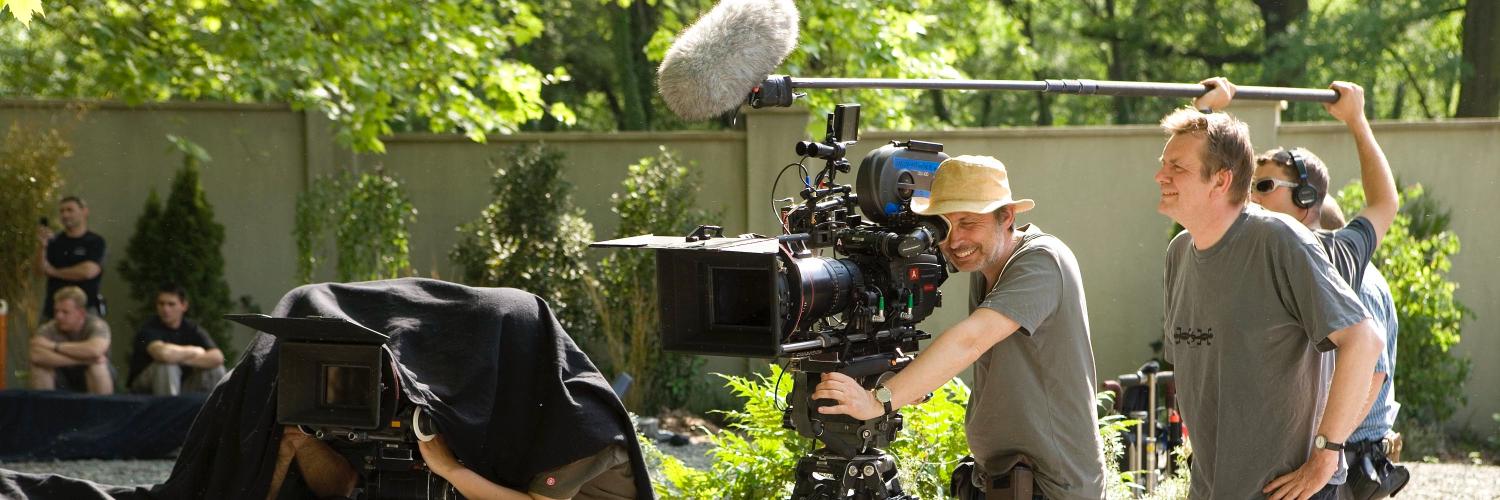When the opportunity presented itself to interview British filmmaker, Mark Herman, it was too bountiful of an opportunity to not seize, considering he’s a successful BAFTA nominee and director/screenwriter behind British gems such as Brassed Off and Little Voice, but also the highly received The Boy in the Striped Pyjamas.
With British cinema seeing new heights each year and playing an active role in the production of Hollywood blockbusters, I thought I’d ask Herman for his insights on the inner workings of the industry. He confessed that he feels “currently very embittered by it” and that “the only thing I know about for sure, personally, are some of the frustrations caused by the workings of the industry”.

His last film, The Boy in the Striped Pyjamas, a powerful story centred on the relationship of a Nazi Officer’s son and his relationship with a Jewish boy in a concentration camp, was released twelve years ago. Herman remembers that the year after its release in 2008, “I seemed to get sent nothing but projects about The Holocaust, when in fact that would be the last thing I would want to be doing next”. He disapproves of Studios’ behaviour, saying “There is a lack of such financier bravery these days, nobody will stick their neck out and take a risk”. He voices how the industry has been on a creative downhill tumble for decades, saying that twenty years ago the “hoops and hurdles a director would have to go through and over were so much fewer. There was a trust in directors’ track records that is not so obvious today.” He punctuates his disenchantment saying “Nowadays it feels like everything has to be safe: either adaptation of successful novels, or sequels in big hit franchises”. Clearly, the industry has had its philosophies re-calibrated, particularly after the collaboration and selling-of-its-soul to Hollywood. Now, all that’s on the menu are micro-budget arthouse flicks that don’t get the circulation they deserve, or colossal budgeted, formulaic studio blockbusters that you can’t escape from.
As a spectator, he articulates how the industry has become numb and is in need of a wake-up call, saying “instead of having films that split opinion, that some people might hate but some just adore, what gets churned out are films that neither really offend nor really delight anybody.” Its systematic, cancerous values have cursed and swindled filmmakers with a ‘survival of the fittest’ mentality. It has cranked up the dog-eat-dog intensity and has fundamentally strangled the life out of the creativity and arts the industry was founded on, that has now been morphed into a relentless business machine with the maximisation of money in its crosshairs and nothing else. Herman solidifies the toxically dysfunctional behaviour of the industry saying “The tail wags the dog in a way”. Cinema finds itself in a bleak dystopian world, having suffocated and neglected the other equally superior services of film; to make us feel, dream and escape our reality.
The industry is juggling several gruelling existential crises and it would be fair to say it’s being put through the wringer. With the recent news of juggernaut cinema chain, Cineworld, suddenly going into a long haul hibernation to save itself from bankruptcy and then mammoth Hollywood
conglomerate, Warner Bros, deciding to release its entire slate of films for 2021 online, it seems that the exhibition sector is lost in no mans land. Both of these strong footed companies haven’t just been outmuscled directly by Coronavirus, but also indirectly by celebrity assassin, Netflix (last victim, Blockbuster). The streaming service’s popularity has taken spectatorship by storm, revolutionising the game, also being catalysed by the orders of sedentarism from the pandemic. Herman argues that younger generations “have got very used to gobbling up ‘movies’ on smaller and smaller screens, and after this year of many people not even experiencing a trip to the movies, folk do get used to alternatives.” With the ball now being in the cinema’s court to win audiences back over, they “will need to make ‘going to the movies’ a little bit more special than it has been in the last decades. Popcorn is no longer enough (..thank God)”. Or will this be the final nail in the coffin?
This fruitful interview aroused many concerns regarding the fate of cinema and what’s in store for it next. Are we on the brink of an ice age, or gearing up for a renaissance? Whatever may be at the root of the disappointments from the industry; the churning out of lethargic, humdrum blockbusters or the ebbing away of the cinema-trip culture, we need to remind ourselves that the industry is founded on supply and demand. Thus, to save the industry, as audiences, we must act; the blood is on our hands.
Image Credit: Mark Herman, Twitter

